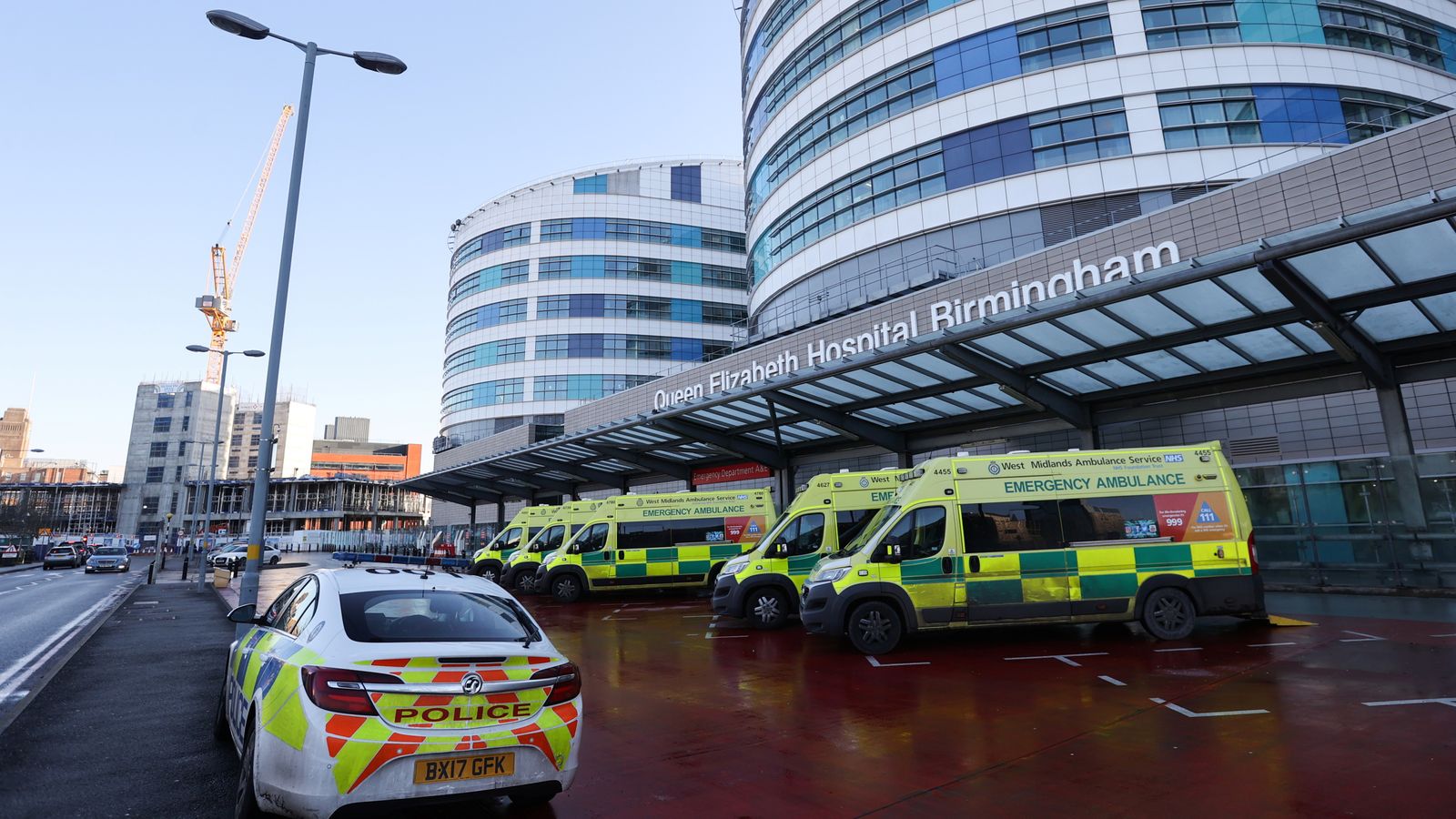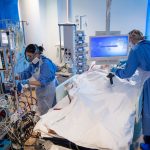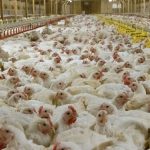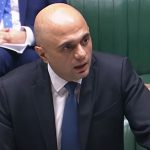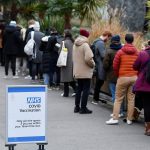A hospital in Birmingham has cancelled elective operations as other health trusts across the country face increasing pressure due to coronavirus.
Pressure is mounting on hospitals and frontline medical staff as a combination of rising coronavirus cases, staff self-isolating and a backlog of other conditions threaten to overwhelm the health service.
In Birmingham, elective operations at Queen Elizabeth Hospital were cancelled on Thursday and Friday due to a lack of space in intensive care contributed to by COVID.
On Monday, the hospital had 110 coronavirus inpatients, 19 of whom were in intensive care. But by Friday, this had risen to 166 with 30 in intensive care.
Please use Chrome browser for a more accessible video player
Health bosses in Sunderland – a virus hotspot – say the trust is “under extreme pressure” due to the surge which has seen hospital cases doubling week-on-week.
In an internal note to staff earlier this week, bosses at the South Tyneside and Sunderland NHS Foundation Trust said there were 80 coronavirus patients receiving hospital treatment compared with just two exactly a month before.
The message started: “The trust is currently under extreme pressure due to a surge in COVID-19 cases.
“Many people are seriously ill and receiving intensive care support.”
Due to the added pressure, staff have been asked to work additional shifts, with a £250 bonus offered for those who could work an extra week of overtime spread over the next six weeks.
Please use Chrome browser for a more accessible video player
It comes as COVID cases hit 48,553 – the largest number for exactly six months.
There are fears the lifting of coronavirus rules on 19 July will worsen things, with Health Secretary Sajid Javid predicting cases could breach the 100,000 mark.
While vaccines have kept hospitalisations low, England’s chief medical officer Chris Whitty has still warned that the number of people being treated in hospital with COVID-19 could reach “quite scary” levels within weeks.
In Leeds, a third of critical care beds were full of COVID cases on Thursday, according to one doctor who said admissions feel “similar to last October”.
Peter Hampshire, clinical director for critical care and pain at Liverpool University Hospitals NHS Foundation Trust, said hospitals in the region are “under significant” pressure ahead of 19 July.
He tweeted: “I’m not sure that many people understand that hospitals are already under significant pressure, even before all restrictions are lifted on 19 July. I’m on ICU this week & in Liverpool, 1/3rd of our critical care beds are occupied by people with COVID.
“It feels like last October with a slow but steady rise in cases. We have already offered mutual aid to Manchester. And our emergency department & ambulance colleagues are under massive pressure…
Follow the Daily podcast on Apple Podcasts, Google Podcasts, Spotify, Spreaker
“We can’t really afford to stepdown surgery again as we have already done this for most of the last year, so we are really behind.”
The Royal London Hospital reopened its COVID intensive care unit on Thursday, as part of a plan to prepare for “increasing numbers” of coronavirus patients in the coming weeks.
Experts say the situation is being worsened by staff shortages caused by a “surge” in workers and medics being forced into self-isolation.
Latest figures show more than half a million people in England were pinged with instructions to self-isolate in a week – up from 356,677 the previous week or a rise of 46%.
It is the highest weekly figure since data was first published in January but there are fears this could rise further when restrictions end on Monday.
Please use Chrome browser for a more accessible video player
Medics are among the critics calling on the government to rethink the month-long delay between 19 July and the quarantine rules being eased for the double-jabbed.
Amid warnings of a “pingdemic”, fully-vaccinated individuals will be exempt from having to quarantine over close contacts but this change will not be introduced until 16 August.
Chris Hopson, chief executive of NHS Providers, said the hospital trusts the organisation represents are increasingly concerned over dealing with the care backlog “with large numbers of staff unable to work”.
“We know that national leaders are working hard to find a solution to this problem. The key is that this solution is delivered as a matter of urgency,” he added.
The Royal College of Anaesthetists and the Faculty of Intensive Care Medicine issued a joint call to exempt double-jabbed NHS staff from isolation sooner.
“The risk of patients contracting COVID from vaccinated healthcare staff is minimal compared to the damage that patients could suffer by having their treatment delayed,” a statement said.
“Without this exemption in place, the NHS will not be able to address the waiting lists. We encourage the government to not wait until August to free vaccinated healthcare workers from the isolation rules – we need this to happen now.”
Ministers are examining whether to make the NHS app less sensitive to help stem numbers.
